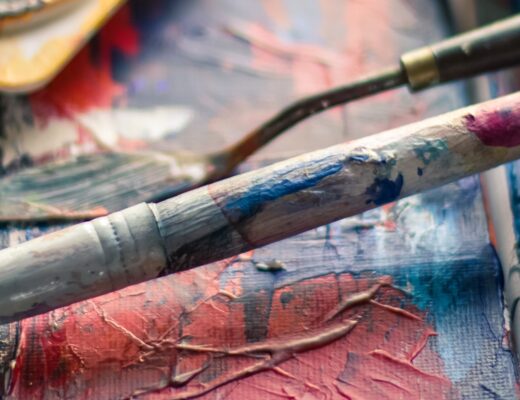Investment in a mutual fund will lead you to accomplish your financial goals only if the process to choose that mutual fund has been thorough. You already know that mutual fund investments are subject to market risks, and there is no guarantee of returns. Even with all the due diligence, the outcome may not be as anticipated. But, if you invest without following the right selection process, and by relying on luck, chances to fail are far too high. Therefore, it is critical to understand how to choose the right mutual fund for your investment.
There are a some critical criteria’s to keep in mind as you initiate the process of choosing the right mutual fund that suit your investment objectives –
- Duration – short term or long term horizon. Capital gains tax on income from the investment will also depend on the ownership duration of the mutual fund
- Income – recurring current income or accumulate gain through reinvesting
- Risk tolerance – swinging returns (high or low) or consistent returns (can be relatively moderate)
- Liquidity – whether any need of funds leading to pre-mature sale expected; you must adequately provide for such conditions as early withdrawal can be detrimental to overall returns
- Preference – an investor may have a specific fondness taste towards equity or debt (and their sub-classes)
Relevant to point four on liquidity, I have discussed the concept of maintaining an emergency corpus in my earlier article. It may be pertinent to go through the same here: ‘Thumb rules of financial planning.’
Next step after understanding the objectives
Once your objectives are clear, you will know the type of fund you should look for and perform the below analysis to nail down the best option. Consider an example where a person wants to invest with a long-term horizon. There is no need to withdraw money early, as there is sufficient liquidity. Preference is equity, but not be too risky. Let us assess the situation based on each of the parameters mentioned above:
| Criteria | Situation |
| Duration | Long term |
| Income | Reinvesting |
| Risk | Low (to medium) |
| Liquidity needs | Low |
| Preference | Low-risk equity |
Based on the above criteria, the person can invest in Large-cap funds and Multi-cap funds. You may refer to my article on the type of mutual funds one can subscribe to based on the time-horizon and risk-profile. Here is the link: ‘Investing in mutual funds.’
Generally speaking, this understanding is good enough to begin the journey of selecting funds. However, some more suggestions mentioned below will help you refine the mutual fund that suits your goals.
Performance track record and assets under management
Technically speaking, both these criteria neither hinder nor lend support to the future performance of a fund. Still, a sneak-peek into the fund’s past tells you a story, and I do not intend to debate whether history repeats itself or not, as that is not the point here. A few inferences to draw are:
- How does the fund performance compare vs the performance of its peers and benchmark index
- Have assets under management grown over the past
- Were the returns more volatile than the general market
Answers to these questions will help you interpret the fund performance, which can appear marvellous or dull in isolation.
Fees and expense ratio
Mutual funds collect a fee when an investor joins the fund or exits, called entry load and exit load. The idea is that the entry load compensates the mutual fund for its selling and distribution expenses; the exit load covers transaction costs and acts as an exit barrier. Long back (in August 2009), the Securities and Exchange Board of India abolished entry load across mutual funds. The exit load exists and differs between fund houses.
As per SEBI (Mutual Funds) Regulations, mutual funds are permitted to charge a portion of their operating expenses to manage the scheme. These include selling and marketing expenses, transaction costs, investment management fees and other administrative expenses. Total expense ratio (TER) is the cost charged to a specific mutual fund scheme related to its management as a percentage of the fund’s net assets. The general principle is – the lower the expense ratio, the better it is for investors. SEBI regulations provide guidelines on the maximum total expense ratio on funds for investors’ benefit.
Active or Passive fund management
Funds, where portfolio/fund managers decide which assets to invest into, are actively managed funds. In this style, the fund managers do a great deal of research on assets, sectors, companies, macro and microeconomic factors before making an investment decision. The objective is to outperform its peer fund with similar goals and beat the benchmark index. These fund managers are usually well connected with companies in which they invest and with participants in financial markets to remain well informed in general. The expense ratio for actively managed funds can range from 0.5% to 1.5%.
Passively managed funds, on the other hand, seek to duplicate the performance of a benchmark index. The composition of these funds, also called Index funds, does not change unless there is a change in the benchmark index. Fewer changes in the fund composition lead to low share turnover and lower transaction-related expenses. Also, since the transactions are limited, the fund generates lower taxable income. All these factors lead to a relatively lower expense ratio.
Direct Plan
You can invest in a mutual fund through a distributor or an agent in a ‘Regular plan.’ Alternatively, no intermediary gets involved in the investment process, and you invest directly in the mutual fund scheme. This method is called the ‘Direct Plan.’
The direct plan transaction is similar to buying a product straight from the manufacturer instead of a distributor or wholesaler. You must have adequate knowledge and ability to select good funds as there is no intermediary to guide you choose the investment. However, these days many platforms are available that offer resources to help you compare options, track past performance and guide you to make the right investment decisions.
There is no distinction between a regular plan and a direct plan. Both are a part of the same mutual fund; the same portfolio manager manages funds; performance gets measured against the same benchmark index. The only difference is between their ‘Expense ratios.’ Since there is no distributor/agent involved, sales and distribution costs are lesser, hence a lower expense ratio in a direct plan. Even though marginal, the NAV (net asset value) is higher in a ‘Direct Plan’, leading to higher gains.
To summarize how to choose right mutual fund
The most crucial aspect is understanding your investment objectives and selecting schemes that can provide you with a balanced portfolio. You are aware that mutual fund investments are subject to market risks. Your selection of funds must factor in your risk appetite. A broad understanding of the economic, industrial and macroeconomic scenario can be helpful in this process. A well-informed choice of mutual fund schemes will help you positively move towards achieving the desired returns over time.
—————————————————————–
The author is a senior finance professional with over fifteen years of work experience in corporate finance and has an affinity for personal finance and investment management. Please leave your comment or share thoughts on this article via email at decodefinance.in@gmail.com. For more articles, please visit the website www.decodefinance.in.
Disclaimer:
The author has used his knowledge, experience, and understanding of the subject to write this article. Any views, opinions, and thoughts mentioned in the article belong solely to the author and not necessarily to the author’s employer (past or current), organization, committee, or other group or individual.
Under any circumstances, the author shall not be liable for any views or analysis expressed in this note. Further, the opinions expressed are not binding on any authority or Court. We advise readers to consult their financial advisor for assistance in their specific case.





Good basic explanation. Thank you. Would like to have a more detailed explanation.
Nicely explained
Lucidly explained.